by Tom
Share
by Tom
Share
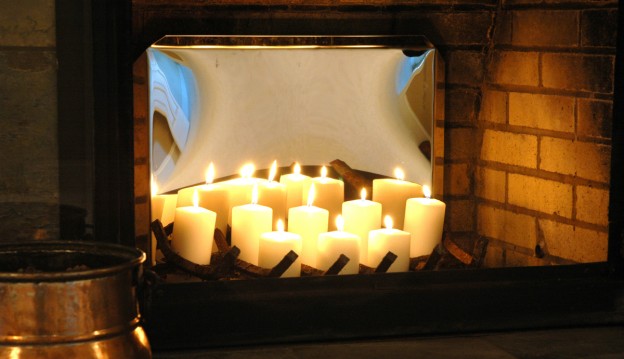
What is a Fireback?
A fireplace fireback back is a simple and historic innovation that dramatically increases the amount of heat your fireplace emits into your home. The back wall of a fireplace absorbs and retains a great deal of heat. A fireback instead radiates that heat outward to warm the home. In addition, by protecting the back wall of the fireplace from the intense heat of the fire, a fireback prevents decay of the fireplace masonry. Find out how to choose a fireback that suits your needs and style.
Cast Iron Firebacks
Fireplace firebacks were, in generations past, always made of cast iron. They take in the heat of the fire and send it back out into the room, much like an old-fashioned iron radiator. Cast iron fireplace firebacks are made in a wide range of sizes. They can accommodate any kind of fireplace, from that of a small apartment to the large hearth of a colonial mansion.
Cast iron firebacks are often cast with a decorative motif, such as a wildlife scene, a commemorative pictorial, or even a coat of arm. Cast iron firebacks are sturdy and do their job well, but because they are solid cast iron, they are very heavy. Their weight makes it a challenge for some people to move and place them, and shipping tends to be very costly as well.
Stainless Steel Firebacks
In the early 21st century, stainless steel firebacks emerged, literally shedding new light on fireback innovation. Because their surfaces are more reflective—sometimes polished to a mirror surface— they add an additional element of brightness when sitting behind a fire. Stainless steel firebacks are much lighter than those made of cast iron, so they are easier to ship, deliver, install and adjust. They are also more affordable, being priced at about half the cost of similarly sized cast iron fireback. Stainless steel firebacks are so effective that they are not recommended for gas fireplaces, because the heat can be magnified so much as to damage gas valves.
Stainless steel firebacks are simple and modern, and fit well in contemporary houses. The mirrored finish can significantly increase both the heat and the light reflected back into the home.
The most recent addition to the world of firebacks are black stainless steel firebacks. They have more of the aesthetics of the cast iron firebacks but some of the weight and cost advantages of the stainless steel firebacks.
How to Choose a Fireback
All three types of firebacks are designed to make the fireplace put out more heat. For those with wood fireplaces, the choice mainly comes down to style. For gas fireplaces, cast iron is the safe choice.
A Halloween fireplace mantel scarf is the fabric drape that covers the top of the mantel. It provides the foundation upon which a Halloween themed mantel is created. The mantel scarf is to a fireplace mantel like a tablecloth is to a dining table: It sets the color scheme and theme. You can find a […]
Make no bones about it, skeletons are the backbone of Halloween decorating. A Halloween skeleton fireplace with simulated human, dog and cat, bat and rat, bird and reptile, or even dragon and unicorn skeletons can send tingles up your spine. In addition to decorating the fireplace, skeletons can sit on chairs or couches and hide […]
Traditionally, knowledge based on teachings and experiences about selecting and burning firewood was passed along verbally. Often such information was put into a rhyming format to make it easier to remember. Thus were born firewood poems and firewood songs to address the question, “Which Firewood Burns Best?” As with most things passed from generation to generation, […]
Have firewood in your life? If you have a wood stove or a wood-burning fireplace, fire pit or fire bowl, you have probably heard some common sayings, sometimes found in rhymes and songs, about firewood. Some call them firewood Old Wives Tales or Old Husband Tales. How can you tell which one is a firewood fact or myth? Which […]
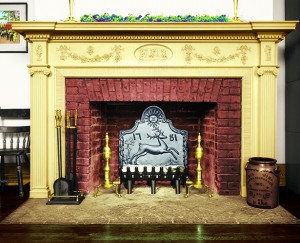
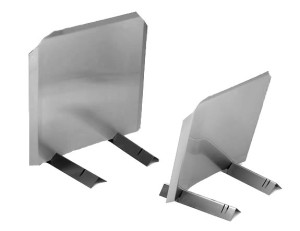
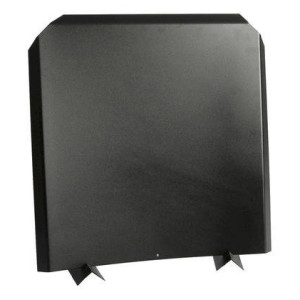
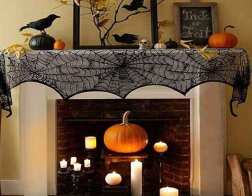
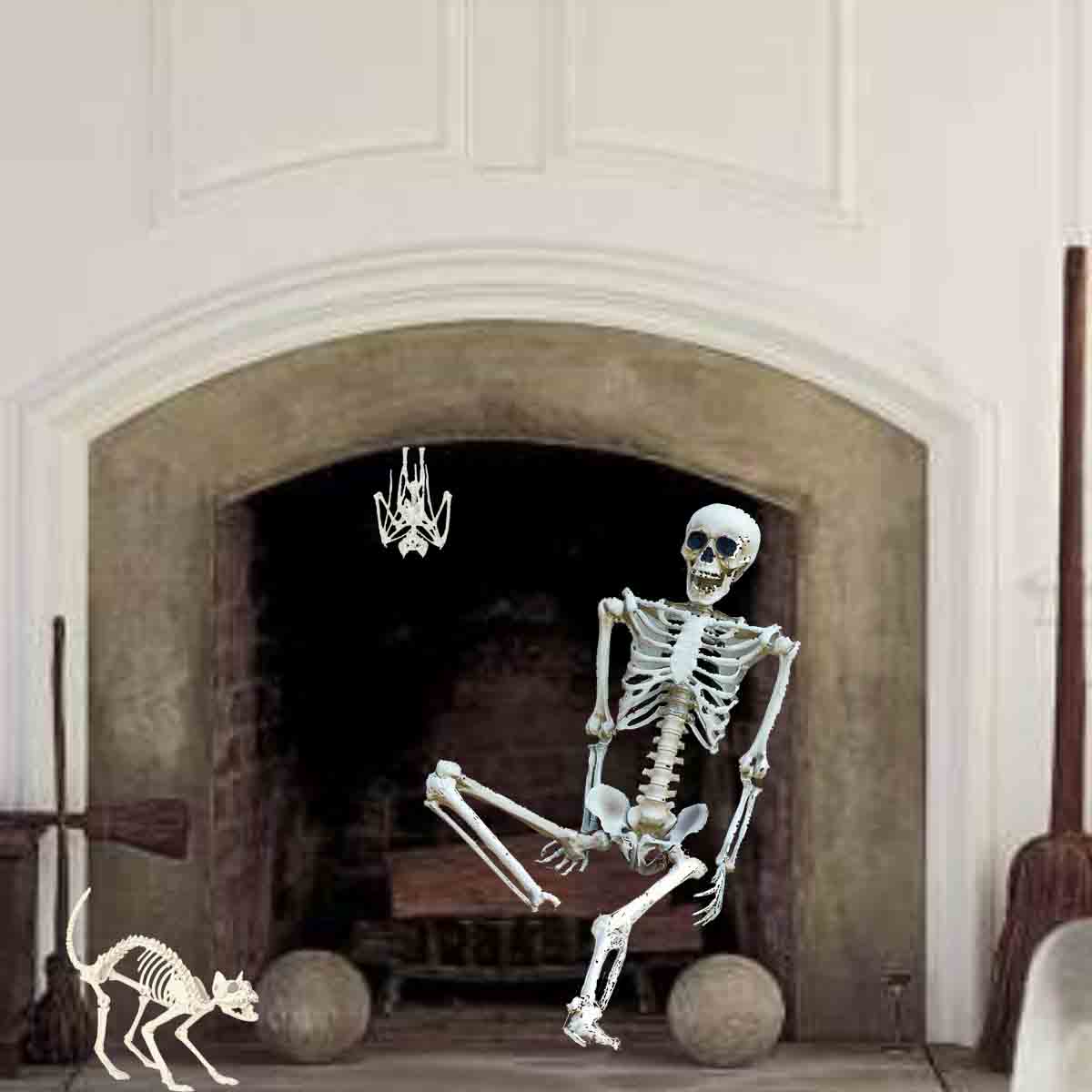

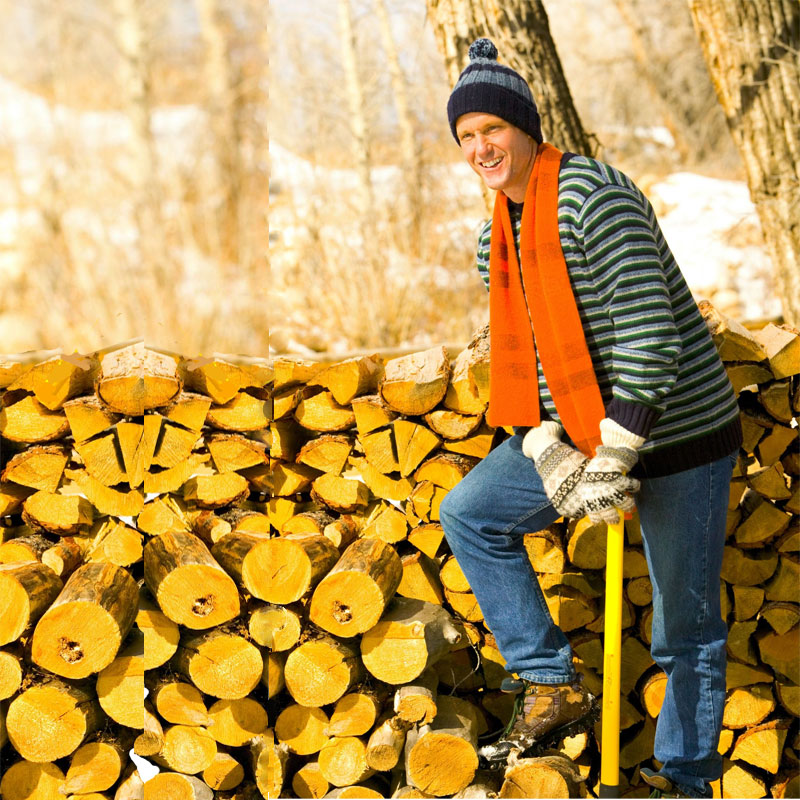
Nice productive information posted on Cast Iron Fireplaces got quite a lot of knowledge about this please do continue sharing.
I have a wood burning fireplace with air tight doors, it is a queen air model with blowers. I have never thought that I get the heat I should get from it, especially burning mostly hedge. Would a fireback help me generate more heat and thus burn less wood?
I think it would be a good idea to talk with the manufacturer of your fireplace and blowers. They may be able to help with this specific model.
In general, a cast iron fireback can store heat and radiate it back into the room, even for a while after the fire goes out.
A stainless steel fireback reflects some of the heat back into the room while the fire is burning. Neither a cast iron nor a stainless steel fireback would cause the fireplace to burn less wood. A stainless steel fireback may put some additional heat back into the room if the doors to the fireplace are open. There’s no way to predict how much benefit your would get from a fireback, although it should help.
We have just opened up and old fireplace that hasn’t been used for years and installed firedogs with a grate. It has a traditional corrugated iron fire back on three sides. All been going well and the fire is great, then this evening there was an alright bang and the entire corrugated sheet fractured straight down the middle. Is there a reason this would happen and is the fire safe to use? Any idea where to get it replaced or can it be repaired?
Liz, we strongly suggest you have a qualified chimney sweep examine your fireplace and fireback. It might be that the old fireback just gave up the ghost after too many years of use. But we want you to have an expert physically examine the fireplace to be sure there is nothing else contributing to this issue. Definitely replace instead of repair that old fireback.
I am looking for a fireback for my fireplace which has a small back ( 21 inches W by 12 inches H) No one seems to sell them so small. Would a cast iron griddle work as a fireback?? Look forward to your response.
Olga, we were unable to locate any manufacturer who makes a fireback less than 15 inches tall. If you have a metal worker or metal shop in your area, they should be able to take a standard stainless steel fireback, such as this one and adapt it for you. Yes, that’s extra expense, but may be the best solution for your situation. Best of luck!
the back wall of my fireplace is curved. it burns wood but also has a gas valve, should i get a cast iron fireback?
AJ, is the gas valve located where the flame from your wood fire could impact it? Or where burning logs or pieces of burning logs could fall on it? If so, you need to have that gas shut off and capped off by a professional, the gas line removed from the fireplace, and any resulting holes appropriately sealed with refactory cement before using your fireplace for a wood fire. At that point, a cast iron fireback would then be suitable.
Stay safe and warm.
Can I use a fireback in an outside fireplace? What type is recommended?
Yes. We definitely suggest using a stainless steel fireback in your outside fireback.